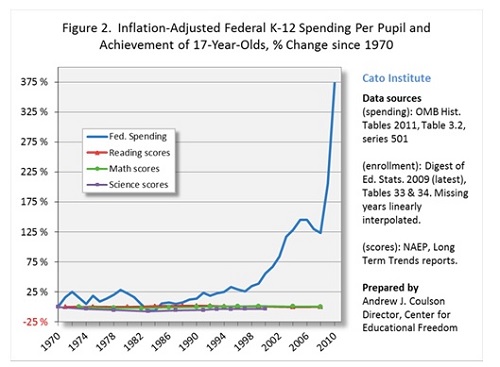In a rare case for the “Maybe They are Starting to Listen” file, a commissioner on the Commission for Evidence-based Policymaking (CEP) admitted “there’s a lot of passion around student privacy.”
Education Week quoted Commissioner Shelly Wilkie Martinez, CEP’s executive director, in a recent article about the potential recommendations for their report coming out in September:
It’s been months of digging in a field full of landmines. For example, Martinez said that the week after many researchers and postsecondary education groups argued to end a ban on federal “student unit data systems” which would track individual students’ data from K-12 schooling through college and into the workplace, the commission was “flooded” with arguments from parents and privacy groups along the lines of “No, never, not at all, definitely not!”
Typically, these bureaucratic commissions either completely ignore or barely acknowledge the views of ordinary citizens and parents because we are not full of lobbying cash that promotes a particular profit or political agenda, and the corporate interests are really lining up to get their hands on our children’s data, in addition to all of the big government types that also want access. So even though the description of the parent and privacy advocates’ remarks was somewhat snarky, it is good to see that view acknowledged.
Even Congress may be starting to understand this as well. As discussed in my article from two weeks ago, there is evidence that Congressman Paul Mitchell (R-Mich.), House sponsor of the College Transparency Act, was hearing strong parent opposition to lifting this prohibition against the student unit-record system. Even though his bill currently lifts the ban, he actually did say he “do[es] not support in any way shape or form creating a student unit record [system].” Let us hope that this is not just a statement meant to appease concerned parents and that he will actually remove the problematic language or withdraw the bill altogether.
Commissioner Martinez also said in her speech before the National Center for Education Statistics national data conference that privacy is a priority, at least in her rhetoric:
As we think about the creation of new evidence through access to data, privacy has to be in the forefront of our minds.
Apparently the CEP has also been hearing a lot of concern about data transparency — who collects the data and how it is used — because she made these encouraging comments as well:
In the days when primary data collection was the main way of building evidence, it was really clear who was asking for data and for what, but in an era of more secondary data collection, we lose some of that connection to the people whose data we are using. … So the idea of being transparent struck us as very important.
This next statement about “humility” as to the reliability of results and the tendency of government to make sweeping policy changes based on not very good evidence is true:
“It begins to really call into question the entire enterprise of science when people feel like the next study down the pike is going to have a very different finding.” She added that agencies should avoid overgeneralizing findings and instead focus on building and promoting a broader “portfolio of evidence.”
However, this is not the only aspect of the “humility” question that should be considered. The biggest problem is that they continue to expand data collection to do research for programs that are documented failures. As stated in my testimony to this commission:
Congress and the rest of the federal government already ignore research that does not fit the paradigm of expanding the federal role in education and further usurping the parental role. Disastrous federal welfare policies that subsidize unwed parenthood have resulted in terrible academic performance, more out-of-wedlock births, and increased rates of crime, drug abuse, suicide, etc. Multiple studies have shown that very few, if any, of the government programs designed to address these government-created problems – for example, school improvement, early childhood, or home visiting programs — have had significant sustainable benefit or reached their stated national goals. According to data presented to the US House Education and Workforce Committee by the Cato Institute several years ago, federal involvement in education has yielded either stagnant or declining academic performance.
And often, federal education programs have made things worse. But of course, the federal government simply disregards the research it disagrees with – and insists, through advocacy of a unit-record system, that it should be given even more data for even more research, which will be ignored if it reaches the “wrong” conclusions. The research of the esteemed co-chairman, Dr. Haskins, is an important example of this situation as he has authored several early-childhood studies, including analysis of Head Start and Abecedarian, and has seen first-hand the failure and or harm of these programs on poor children. Regardless of his views on lifting the prohibition on the creation of a student unit-record system, it is somewhat ironic that he is serving on this commission that is hearing so many pleas to expand access to more privacy-destroying data for more [ineffective] government programs.
Although we will still have to wait for CEP’s report and the legislation that comes from it, it is gratifying to see the parent-led student privacy movement has moved beyond being ignored and is at the very least being acknowledged. Hopefully this is more than lip service.
However, we cannot rest on our laurels. We must continue to make our voices heard and heed Thomas Jefferson’s wise adage that “eternal vigilance is the price of liberty,” especially when the privacy, freedom of conscience, and futures of our children are at stake.



